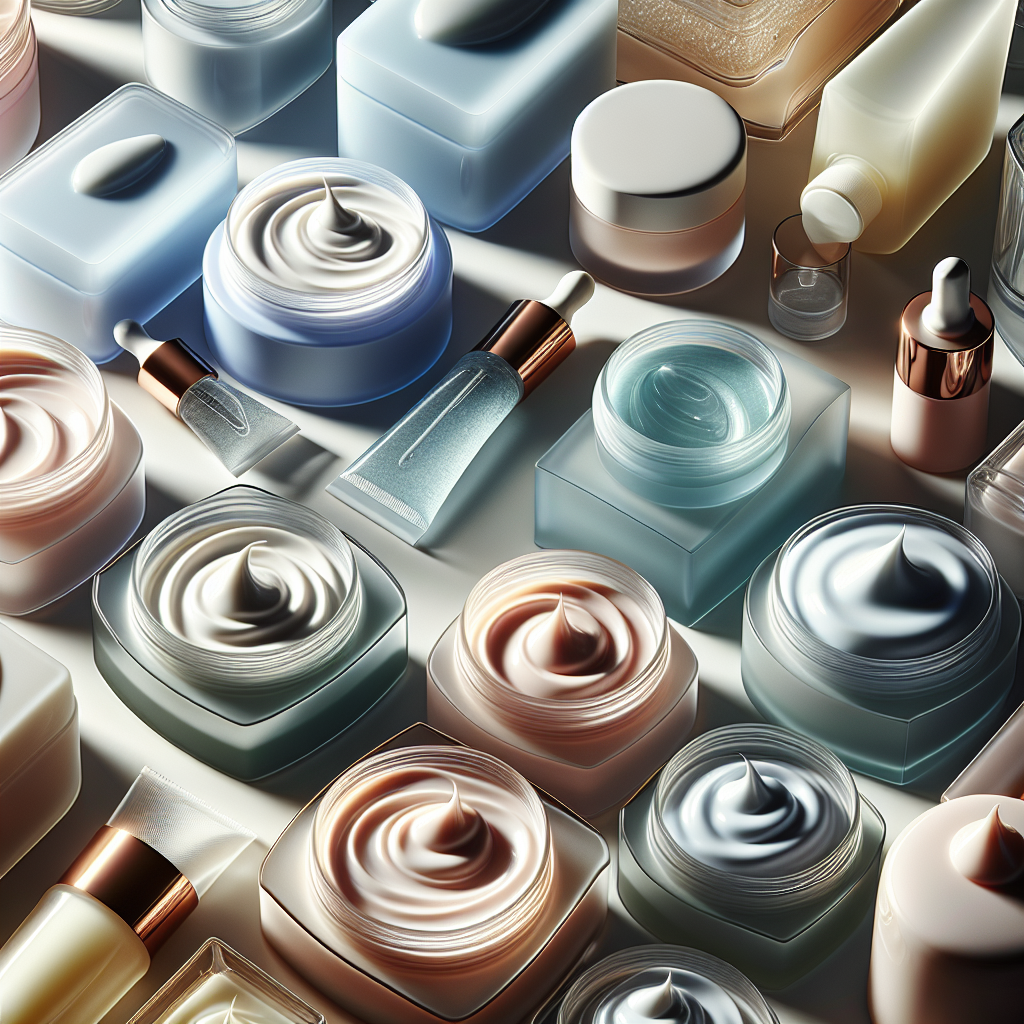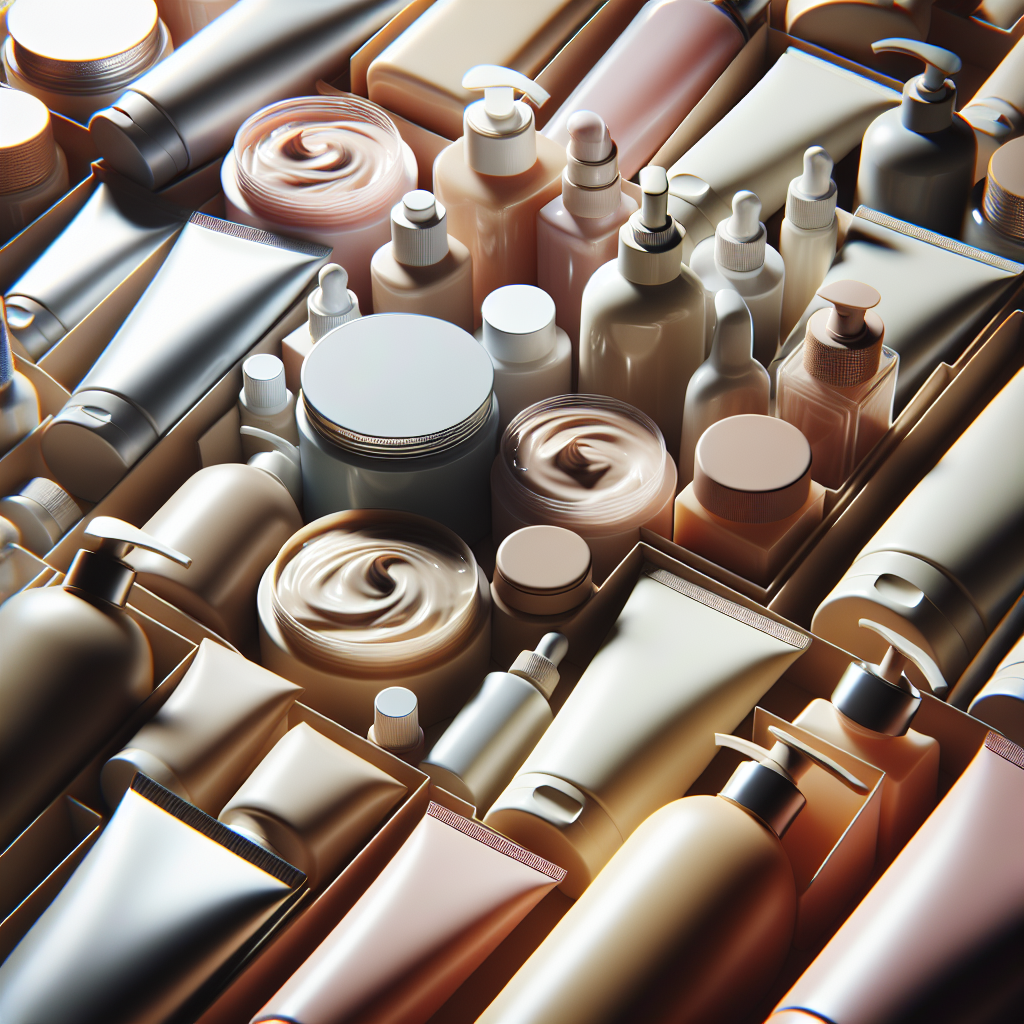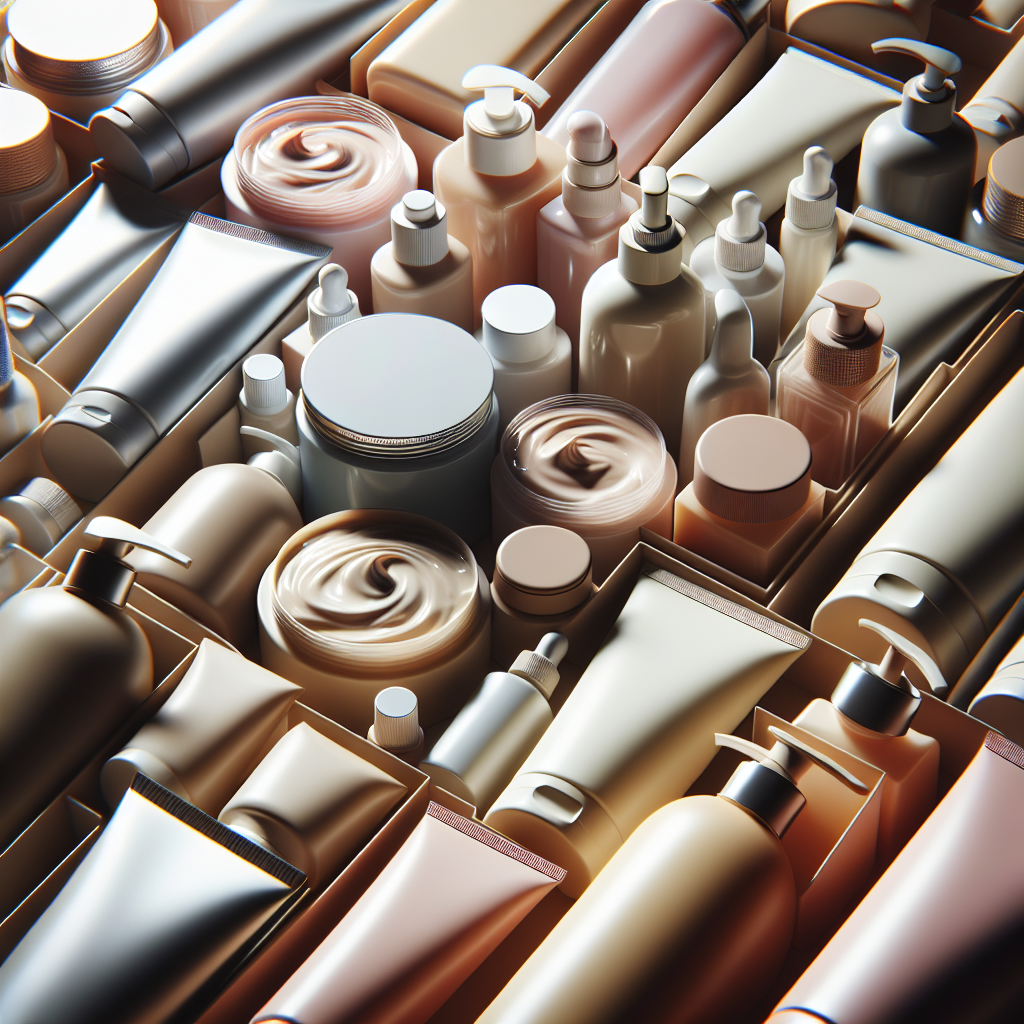Finding the perfect moisturizer for your skin can sometimes feel like a daunting task. With so many options available, it’s easy to get overwhelmed and unsure of where to start. But fear not, because in this article, we will guide you through the process of choosing the right moisturizer for your specific skin type and needs. Whether you have dry, oily, combination, or sensitive skin, we’ve got you covered. By the end of this article, you’ll be equipped with the knowledge to make an informed decision and have your skin feeling hydrated and nourished. So let’s get started and find the moisturizer that’s perfect for you!
Understanding Your Skin Type
Understanding your skin type is the first step in choosing the right moisturizer for your needs. Here are the common skin types and their characteristics:
Normal Skin
Congratulations if you have normal skin! This skin type is well-balanced, neither too oily nor too dry. Normal skin is generally firm, clear, and has good elasticity. It rarely experiences breakouts or sensitivity.
Dry Skin
Dry skin can often feel tight and flaky. It lacks moisture and natural oils, which can lead to a dull and rough complexion. Dry skin is prone to fine lines and wrinkles.
Oily Skin
Oily skin is characterized by excessive sebum production. It often appears shiny and has enlarged pores. People with oily skin are more prone to acne breakouts and blackheads due to the excess oil clogging the pores.
Combination Skin
Combination skin is a combination of both oily and dry skin. Usually, the T-zone (forehead, nose, and chin) is oily, while the cheeks may be dry. Finding a moisturizer that balances both oily and dry areas is key for this skin type.
Sensitive Skin
Sensitive skin is easily irritated and prone to redness, itching, and stinging. It may react to certain products, environmental factors, or even temperature changes. Sensitive skin requires gentle and soothing moisturizers.
Identifying Your Skin Concerns
Now that you know your skin type, it’s time to identify any specific concerns you may have. Here are common skin concerns and their characteristics:
Acne-prone Skin
Acne-prone skin is prone to frequent breakouts and blemishes. It may have clogged pores, blackheads, and inflammation. Look for moisturizers that are non-comedogenic, oil-free, and contain acne-fighting ingredients like salicylic acid or tea tree oil.
Aging Skin
Aging skin experiences a loss of elasticity and firmness. Fine lines, wrinkles, and age spots may also become more apparent. Look for moisturizers that contain ingredients like hyaluronic acid, retinol, or peptides, which can help reduce the signs of aging.
Hyperpigmentation
Hyperpigmentation refers to dark spots, uneven skin tone, or patches of excess pigmentation. Look for moisturizers with ingredients like vitamin C, kojic acid, or licorice extract, known for their brightening properties.
Uneven Skin Tone
Uneven skin tone can be caused by various factors, including sun damage or post-inflammatory hyperpigmentation. Look for moisturizers with ingredients like niacinamide or arbutin to help even out your skin tone.
Fine Lines and Wrinkles
Fine lines and wrinkles are natural signs of aging. Look for moisturizers that contain ingredients like peptides, retinol, or collagen-boosting antioxidants to help smooth out these lines and promote a youthful appearance.

Ingredients to Look for
Understanding the key ingredients in moisturizers can help empower you to make informed choices. Here are some beneficial ingredients to look for in moisturizers:
Hyaluronic Acid
Hyaluronic acid is a hydrating powerhouse that can hold up to 1000 times its weight in water. It helps to attract and retain moisture in the skin, keeping it plump and hydrated.
Glycerin
Glycerin is a humectant that draws moisture from the air into the skin, helping to keep it hydrated. It also forms a protective barrier on the skin, preventing moisture loss.
Ceramides
Ceramides are naturally occurring lipids that help to strengthen the skin’s barrier function. They help to lock in moisture and protect the skin from external irritants.
Niacinamide
Niacinamide, also known as vitamin B3, has a variety of benefits for the skin. It helps to improve skin texture, reduce redness, and regulate sebum production.
Antioxidants
Antioxidants like vitamin C, vitamin E, and green tea extract help to protect the skin from free radical damage caused by environmental factors. They can also help to brighten the skin and reduce inflammation.
Avoiding Harmful Ingredients
While choosing moisturizers, it’s important to be aware of ingredients that may be harmful or irritating to your skin. Here are some ingredients to avoid:
Parabens
Parabens are preservatives commonly used in skincare products, but they can cause skin irritation and allergic reactions in some individuals. Look for paraben-free moisturizers.
Fragrances
Fragrances, both synthetic and natural, can cause skin irritation and allergies, especially for those with sensitive skin. Opt for fragrance-free or products with a low percentage of fragrance.
Sulfates
Sulfates, such as sodium lauryl sulfate (SLS), are foaming agents often found in cleansers, but they can strip the skin of its natural oils and cause dryness or irritation.
Alcohol
Alcohol, especially denatured alcohol, can be drying and irritating to the skin. Avoid moisturizers that contain high levels of alcohol or opt for products with fatty alcohols like cetyl alcohol or stearyl alcohol, which can actually be moisturizing.
Mineral Oil
Mineral oil is a petroleum-derived ingredient that is occlusive and can clog pores. It is best avoided, especially for those with acne-prone or oily skin.

Consider the Texture
The texture of a moisturizer plays a crucial role in how it feels on the skin and how effectively it addresses your skin concerns. Here are some common moisturizer textures to consider:
Cream
Cream moisturizers are thicker in consistency and provide deep hydration. They are ideal for dry or mature skin types that require intense moisture.
Lotion
Lotions have a lighter consistency compared to creams and are suitable for normal to dry skin types. They are easily absorbed, leaving the skin feeling soft and hydrated.
Gel
Gel moisturizers have a lightweight and water-based formula, making them perfect for oily or combination skin. They provide hydration without feeling heavy or greasy.
Oil
Face oils are rich in nourishing ingredients and can be used alone or layered with other moisturizers. They are beneficial for dry, sensitive, or mature skin, providing a natural glow.
Serum
Serums are lightweight and highly concentrated formulas that deliver active ingredients deep into the skin. They are suitable for all skin types and can address specific concerns like fine lines, wrinkles, or hyperpigmentation.
SPF and Sun Protection
Incorporating sun protection into your skincare routine is essential for maintaining healthy and youthful-looking skin. Here are some important factors to consider when choosing a moisturizer with SPF:
Broad-Spectrum
Look for moisturizers labeled as “broad-spectrum,” as they provide protection against both UVA and UVB rays. This ensures that your skin is shielded from both aging and burning effects of the sun.
SPF Level
Choose a moisturizer with an appropriate SPF level for your needs. SPF 30 is generally recommended and provides high protection. However, if you spend a lot of time outdoors or have fair skin, you may consider a higher SPF.
Physical vs. Chemical Sunscreens
Physical sunscreens contain ingredients like zinc oxide or titanium dioxide, which act as a physical barrier to reflect or scatter UV rays. Chemical sunscreens, on the other hand, absorb UV rays and convert them into heat. Choose the type that suits your skin best.
Reapplication
Remember to reapply your sunscreen every two hours, especially if you are in direct sunlight or sweating. Moisturizers with SPF may not provide sufficient protection if not reapplied regularly.

Looking for Additional Benefits
Many moisturizers offer additional benefits beyond basic hydration. Here are some common additional benefits to consider:
Anti-Aging Properties
Moisturizers with anti-aging properties can help minimize the appearance of fine lines, wrinkles, and promote a more youthful complexion. Look for ingredients like retinol, peptides, or collagen-boosting antioxidants.
Brightening Effects
If you have dull or uneven skin tone, consider moisturizers that contain brightening ingredients like vitamin C, niacinamide, or licorice extract. These can help to even out your complexion and give you a radiant glow.
Soothing and Calming
For those with sensitive or easily irritated skin, look for moisturizers with soothing ingredients like aloe vera, chamomile, or green tea extract. These can help calm inflammation and redness.
Oil Control
If you struggle with excess oiliness or shine, opt for moisturizers specifically formulated to control oil production. Look for lightweight, oil-free, and mattifying formulas.
Redness Reduction
If you have redness-prone skin, look for moisturizers with anti-inflammatory ingredients like chamomile or oat extract. These can help to reduce redness and calm sensitive skin.
Considering Your Budget
Choosing a moisturizer that fits your budget is important, as skincare can vary greatly in price. Here are different options to consider:
Drugstore Options
Drugstore brands offer a wide range of affordable moisturizers that cater to different skin types and concerns. These products can sometimes be just as effective as higher-priced options.
Mid-Range Brands
Mid-range brands typically offer a balance between quality and affordability. They may have more specialized formulations or higher concentrations of active ingredients compared to drugstore options.
High-End Brands
High-end brands often come with a higher price tag but may offer luxurious textures, innovative ingredients, and advanced formulations. They can be worth the investment if you have specific skincare concerns or preferences.

Testing and Patch-Testing
Before committing to a new moisturizer, it’s important to test it out and ensure it works well with your skin. Here are some tips for testing and patch-testing:
Product Samples
Ask for product samples at stores or purchase travel-sized versions to test out a moisturizer before committing to a full-size product. Use it for a few days and observe how your skin reacts.
Patch Testing
Patch testing involves applying a small amount of the moisturizer to a small area of your skin, typically behind the ear or on the inner forearm. Monitor the area for any adverse reactions, such as redness, itching, or irritation.
Observing Skin Reactions
When testing a new moisturizer, pay attention to how your skin reacts. If you experience any negative reactions or your skin feels uncomfortable, discontinue use and try another option.
Seeking Recommendations and Reviews
Seeking advice from professionals or reading reviews can help you make a more informed decision. Here are two sources to consider:
Consulting a Dermatologist
If you have specific skin concerns or sensitivities, it is recommended to consult a dermatologist. They can provide personalized recommendations based on your individual needs.
Reading Online Reviews
Reading online reviews from trusted sources or skincare communities can give you insight into other people’s experiences with a specific moisturizer. Consider both positive and negative reviews to get a balanced perspective.
Seeking Advice from Beauty Experts
Beauty experts, such as estheticians or skincare specialists, can offer valuable advice on choosing the right moisturizer for your specific skin type and concerns. They have in-depth knowledge and may be able to recommend products tailored to your needs.
Choosing the right moisturizer for your skin may take some trial and error, but understanding your skin type, concerns, and ingredients can help narrow down the options. Remember to listen to your skin, consult professionals if needed, and take your preferences and budget into account. With the right moisturizer, you’ll be on your way to achieving healthy, hydrated, and radiant skin.






